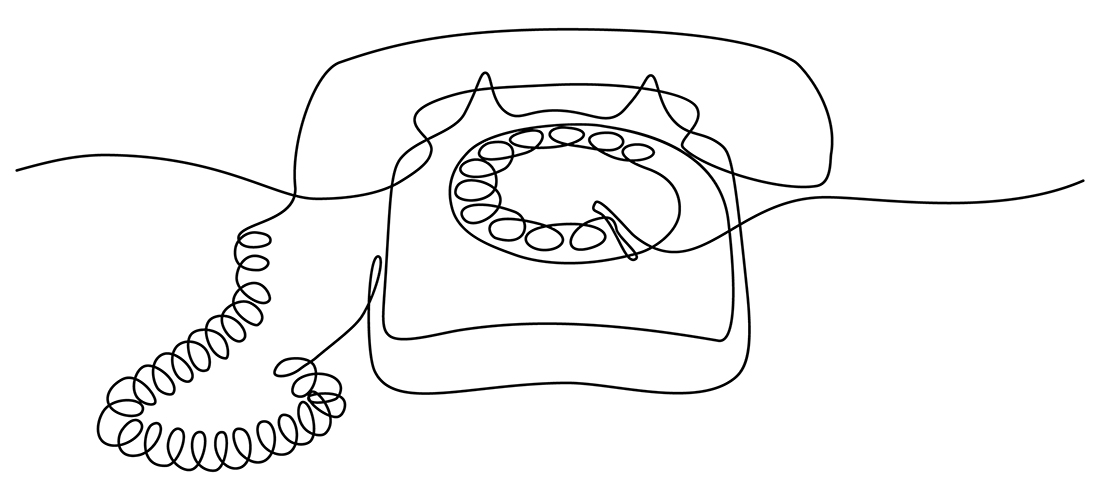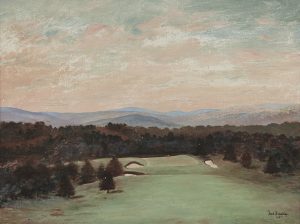
Joe Being Joe
The intersection of golf and politics
By Jim Moriarty
Politics has been brushing up against golf since William Howard Taft, our first overweight, presidential, high handicapper, left office the same year Francis Ouimet beat Harry Vardon and Ted Ray at The Country Club. Barack Obama and Donald Trump are as far apart as Jupiter and Mars but feel the gravitational pull of the game equally. I’ve never met Joe Biden, who also plays, but I do know one thing about him, and I wouldn’t know it if it hadn’t been for golf.
It begins with Ben Wright.
With the impish grin of a pixie and a CV that included writing for the London Sunday Times, Wright was the British voice imported by CBS at the very time the magnificent Henry Longhurst’s was waning. “Mr. Longhurst excoriated me on my first day at the Masters,” Wright told me. “He said this immortal phrase: ‘We’re nothing but caption writers in a picture business, and if you can’t improve the quality of the picture, keep your f***ing mouth shut.’”
Wright was a quick study. “To this day,” the late Frank Chirkinian, the Hall of Fame CBS director, told me, “the 1975 Masters was the greatest Masters of all time — as a telecast. The dialogue between Ben Wright and Henry Longhurst was priceless. Wieskopf and Jack Nicklaus are tied for the lead. Nicklaus is standing on the 16th green waiting for Tom Watson to go back and re-tee because he put his ball in the water. Weiskopf is on the 15th green, and he makes a birdie putt to go into the lead by one. The crowd erupts. Take a close-up of Jack Nicklaus for a reaction shot. Over the roar of the crowd Ben Wright says, ‘Ah, evil music for Mr. Nicklaus’ ears.’ Weiskopf goes to the tee just in time to watch Jack make that historic 40-foot putt. For the first time the stoic Jack Nicklaus rushes off the green with a putter raised over his head and Henry, over the crowd, says, ‘My, my, my, never before have I seen such a thing.’ Cut back to Weiskopf on the tee to get his reaction. And Henry says, ‘And now Weiskopf must take it as he dished it out.’ Now, is that any good?”
Ben no doubt wishes he’d been as succinct in 1995 at the LPGA’s McDonald’s Championship in Wilmington, Delaware. It was there that he gave an interview to a feature reporter for the News Journal, Valerie Helmbreck. It’s impossible to go into all the details here. Let’s just say Wright said some things about breasts, in one context, and lesbians in another. Helmbreck, who preferred not to use a tape recorder in her work but took notes as scrupulously as a monk writing in the Book of Kells, did follow-up interviews. CBS got wind of the story and tried to convince her not to write it. She wrote it anyway.
Furor ensued. Wright was summoned to New York. There, either Wright or the suits hatched a plan to deny he had said what he said. Helmbreck was pilloried as having published lies spiced with innuendo. It wasn’t Wright’s or CBS’s finest hour. All manner of insidious motives were attributed to Helmbreck, who knew so little about golf that when Chirkinian called to try to convince her not to write the story, she had to ask him how to spell his name and what his job was. He called her “honey,” and she hung up on him.
Months after the firestorm was lit, Sports Illustrated’s Michael Bamberger found someone who had overheard the interview. Helmbreck’s version was confirmed. But that’s not the end of it.
Wright was thrown out of golf. Period. There was to be no forgiveness, no absolution, no pardon, no redemption. He became a “pariah” — that’s his word. Had Ben, who was 63 at the time, simply told the truth, he’d have had his wrist slapped and been in the booth, brilliantly no doubt, for another decade at least. Instead, he eventually did time in the Betty Ford Clinic; and Helmbreck, disenchanted with the way she was treated by friends and foes alike, quit the newspaper 18 months later.
Helmbreck and Wright spoke again in 1998. It was on her daughter’s birthday. “He and I talked on the phone for an hour. It was kind of like two people who had been in a train wreck together sort of comparing notes,” she told me in ’05.
But, I promised you Joe Biden, didn’t I? When Helmbreck agreed to meet me at a restaurant in Wilmington, she was walking with a cane. She apologized even before we began to talk, saying she tired easily. In January of that year, standing in her kitchen washing out a coffee cup, she experienced a sudden, crushing headache. An artery in her brain stem had burst. Her husband, Al Mascitti, an editor at the News Journal, had left the house 15 minutes earlier to attend the governor’s inauguration. A friend got her to a nearby hospital, and she was helicoptered to the Thomas Jefferson University School of Medicine in Philadelphia. She had less than a 20 percent chance of survival. When I saw her, she still had a stent in her head, draining blood. “It’s made by Rolex,” she said.
“The one person in Delaware who had what I had and called my husband was Joe Biden,” she said. Biden was a U.S. senator then. It was no big deal, she tried to explain, “It’s a small state. Everybody knows everybody else.”
Biden filled her husband in on what the stages of her recovery would look and feel like. “Honestly, the stuff that he told my husband was the most helpful because you’re never sure if what you’re feeling is normal,” she said. The last I knew, Helmbreck was living in France and writing again.
It’s peculiar, this game of golf. Sometimes it reveals character without ever hitting a shot. PS
Jim Moriarty is the editor of PineStraw and can be reached at jjmpinestraw@gmail.com.





